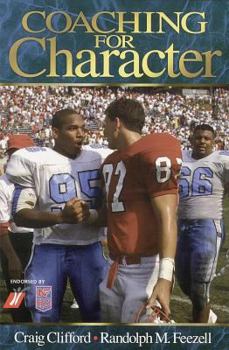Coaching for Character: Reclaiming the Principles of Sportsmanship
Coaching for Character provides coaches with a valuable tool to help them understand the basic principles of sportsmanship, the justification of these principles, and how to teach their players to understand and apply them. By applying the understanding of sportsmanship explained in the book, coaches will create more disciplined and coachable individual athletes and teams. And, more important, they will help young athletes develop the character and perspective that will serve them well throughout their lives. Combining years of coaching and teaching experience, Clifford and Feezell provide clear guidelines to help coaches teach their players respect for - opponents, - teammates and team, - officials, - coaches, and - the rules and traditions of the game. With proper respect, athletes are more likely to compete fairly and fully, to sacrifice in order to achieve individual and team goals, and to develop attitudes that make them enjoyable to coach. Coaches' responsibilities as models and educators are brought to life through real situations that confront them on and off the field. The authors provide numerous questions that help readers to become more reflective about sport. The book also urges coaches and athletes to strive for a healthy balance between the playful side of sport and the seriousness of competition. By using Coaching for Character 's special suggestions for teaching sportsmanship, coaches will find new ways to reach their athletes--without preaching or sacrificing practice time that could be spent on developing the physical skills, conditioning, and mental strategies that are also essential to athletic success. Clifford and Feezell demonstrate that sportsmanship doesn't get in the way of genuine competition--that a commitment to sportmanship comes from an understanding of the nature of competition.
Format:Paperback
Language:English
ISBN:0880115122
ISBN13:9780880115124
Release Date:June 1997
Publisher:Human Kinetics Publishers
Length:128 Pages
Weight:0.50 lbs.
Dimensions:0.4" x 6.0" x 8.9"
Age Range:18 years and up
Grade Range:Postsecondary and higher














